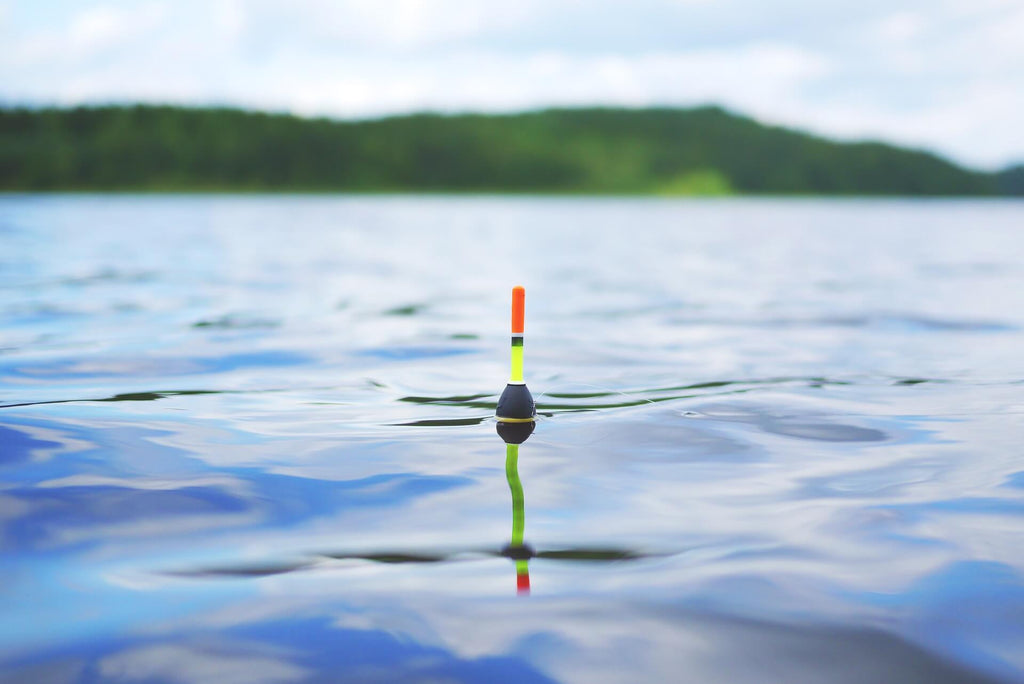Avoid missed bites when fishing - these methods work

Missed bites when fishing are a bit like playing darts. You throw your dart at the target with great anticipation and as much precision as possible, hoping to get as good a score as possible. The dart flies into the bullseye with full force, you feel happy and are very confident about the number of points you have scored. But then it happens. If you're not paying attention just once or take too long, the dart comes off the dartboard and falls to the ground - the points are gone!
Does this sound familiar to you from fishing? Have you had the fish on your hook countless times and seen the monster on your evening plate until the little guy actually managed to get away from the hook, leaving you standing there like a dumbfounded idiot? Don't worry - you're not alone! So that the agile water dweller doesn't manage to escape next time, WOLFGANGS has listed some valuable tips for you with which you can specifically reduce missed bites while fishing.
Only as much as fits in the mouth
Especially when one missed bite follows the next , you wonder whether you are doing something wrong or are simply too stupid for the intended endeavor. Don't worry, this not so impressive catch record certainly has nothing to do with your intelligence. Instead, you should rethink your choice of bait and make some minor adjustments.
The bigger the treble hooks, the harder it will be to get the monster hook into the fish's mouth. Big baits don't always mean big success. Thinking too big can lead to less success. Try a few sizes smaller and watch carefully to see if things change for the better. Medium-sized fish in particular like to bite on the smaller treble hooks.
More hooks, more attack surface
Soft baits often have a major flaw, which in turn means that you may experience a lot of missed bites. The single hooks on jigs are usually attached very far to the front, meaning that the rear part of the soft bait has no catching value. Many more passive and cautious fish will end up nibbling on the rear part of the bait without being stopped or disturbed in the slightest.
You can remedy this quickly and easily with a so-called " fear treble hook ". The additional treble hook placed in the rear part of the rubber bait now provides more surface area for attack. This not only reduces the number of missed bites, but also ensures that fearful and reserved fish become targets.

Hot, hotter, fish on the hook!
Have you ever tried cutting a steak with a bread knife? Or maybe you've ever tried what it feels like to carve wood with a blunt knife? Unsuitable or blunt tools mean that the results are of poor quality, or that no results are visible at all. These are exactly the same facts that apply when fishing, but very few people consider them.
Far too often, people fish with blunt or worn hooks and treble hooks without most people even realizing it. But the fishing hook really has it anything but easy in use, as it is confronted with many different underwater influences that take their toll over time. If mussels, stones, wood and horse mackerel are in the way and the hook gets caught in them again and again, it is only a matter of time before the hook becomes blunt or unusable. You should remember to check the sharpness at regular intervals. Only a hook of perfect quality can ensure that the fish can be pulled ashore.
Avoid missed bites when fishing with a lighter head
Even in a very strong current, you can easily carry on fishing and hunting with the help of a heavy lead head. The heavy heads are also very comfortable to cast - a 50m cast is easily possible with a lead head of this category.
But what good are these initially gigantic advantages if the bite is often empty? Why would a fish strike when it is so difficult to feed when its natural food normally floats into its mouth almost effortlessly? Fish are also comfortable and initially only choose what is quick and easy to consume. It doesn't matter whether you are fishing in the pond next door or getting ready for a fishing trip in Norway - in this respect, all sea creatures are probably pretty much the same. It can therefore be an advantage if you set the weight of the lead head to be lighter.
A closer togetherness
Being close to the fish can be a decisive factor in catching a fish. No, this does not mean that you should talk to the fish in a loving way in order to build a close bond. Fish tend to react negatively to attempts to get close to them. The " closeness " is to be taken literally - try to fish close to the fish if the conditions allow it. The further away the fish is from you, the worse the strike will be.
The result? The rod may only signal a bite for a few seconds and then the bend returns very quickly. The fish moves away and you still haven't caught anything. When fishing from a boat, for example, it is advisable to make three 20m casts rather than just one long 60m cast. Avoid long distances and watch as your catch rate increases with a high probability.






